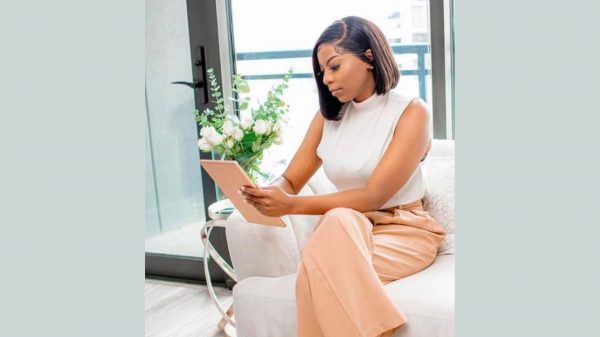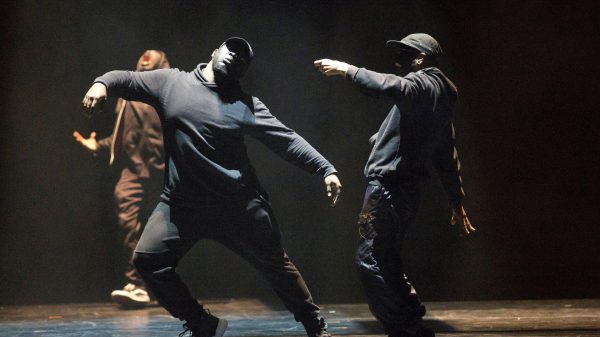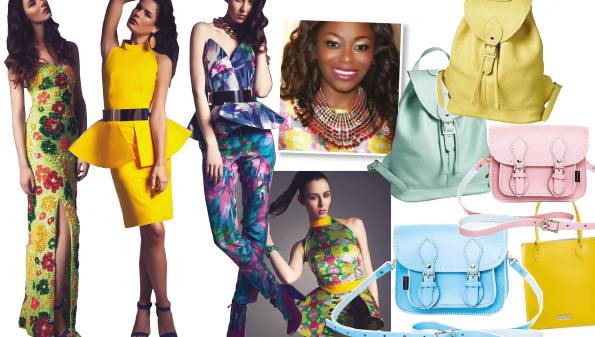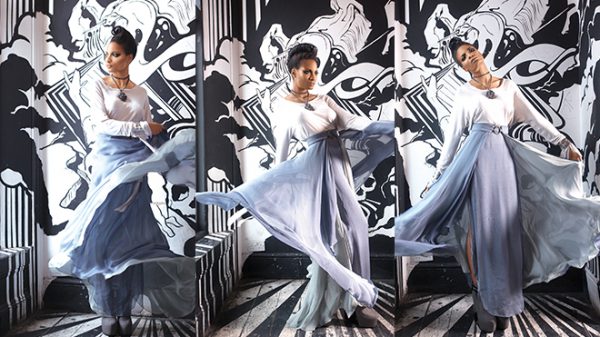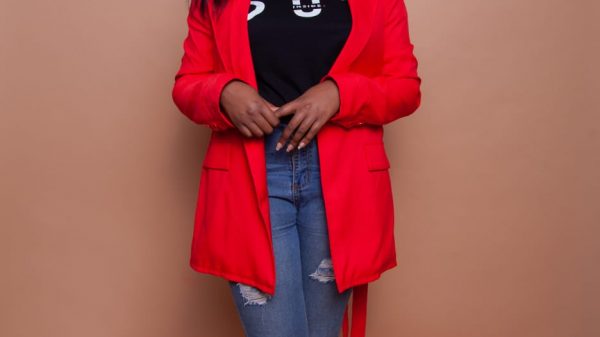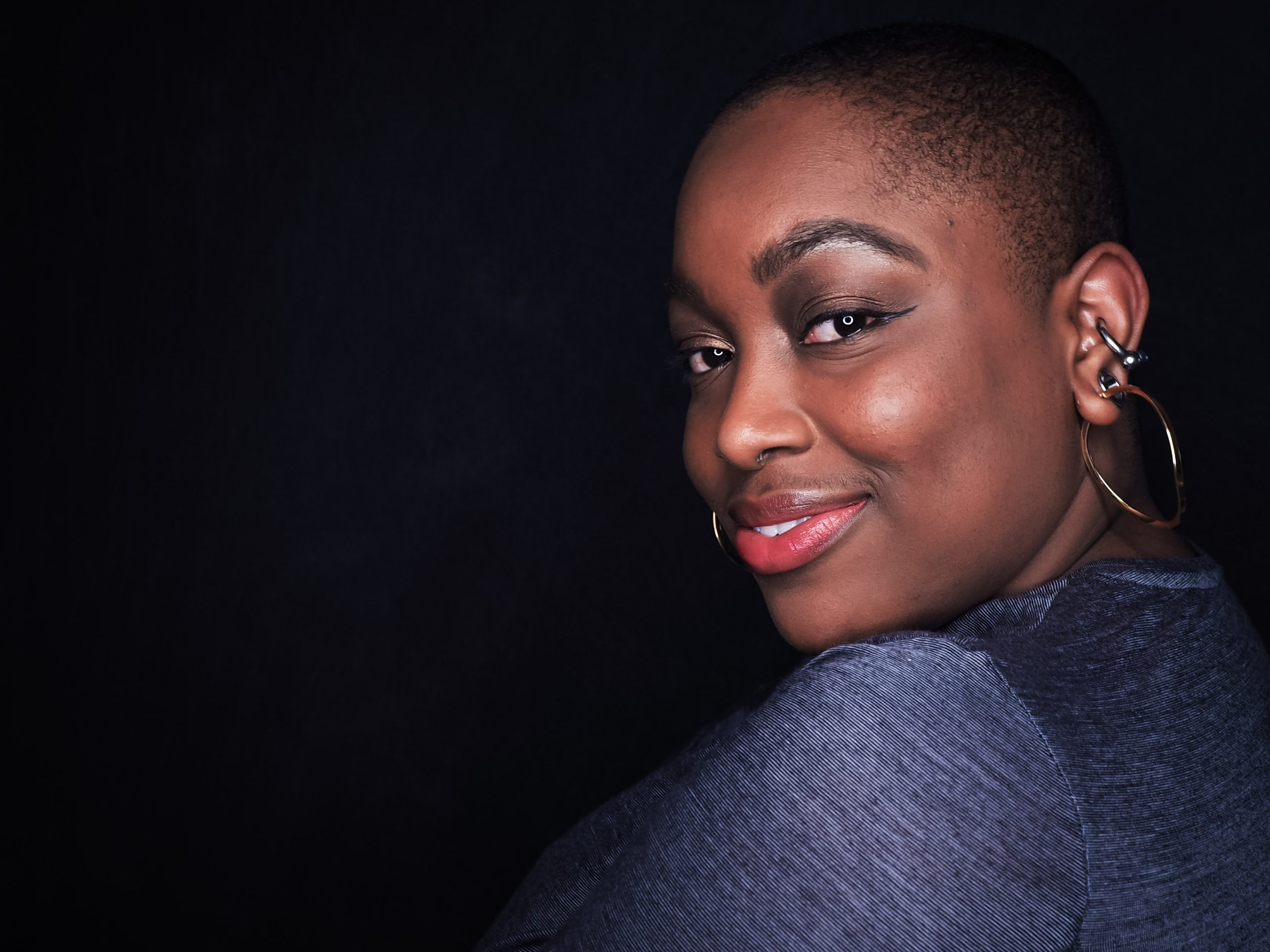Despite long-held traditions of beauty being tied to having long, flowing hair, an increasing amount of Black women are turning it on its head, choosing to show off their scalps instead. Pride’s Emmanuella Ngimbi speaks to a few women who’ve embraced the big chop.
Over the years, ideas of what it means to be ‘feminine’ and ‘beautiful’ have evolved – however, ideals of what ‘good’, and ‘pretty’ hair for Black women have been slower to change.
From childhood, we’re told fairytales about beautiful women, mostly with long hair – in 2010 Disney film Tangled, Rapunzel was literally magical until her superbly long locks were cut, stripping her of her healing powers. How much more of a reminder do we need about the importance of a woman’s hair? Furthermore, this societal preference for long hair tends to exclude a lot of Black women, due to the tendency of Afro hair to grow upwards, or break, rather than grown down to the bottom of your back and beyond. With the message of ‘a woman’s beauty being in her hair’ so heavily reproduced, there’s a lot of pressure built into the presentation of our locks – it’s a large part of why the global Black hair industry is so lucrative.
The rise of the natural hair movement worldwide is doing what it can to reverse harmful ideas of what afro hair is; as well as encouraging people to embrace their natural texture, platforms such as World Afro Day highlight instances where natural hair sparks up prejudice, due to harmful stereotypes of Black hair as ‘unsuitable’ for professional settings. Just last year, a 12-year-old Rastafarian schoolboy from Fulham won a case against his school, after they had banned him from attending because he had dreadlocks.
As positive as this natural hair movement is, the attachment of hair to ideas of beauty is apparent nonetheless. Although the creative freedom that comes with Black hair can be fun, the inescapable politics of deciding how to wear your hair can simply prove too much – leading to a growing number of Black women deciding to do away with the drama completely by going bald.
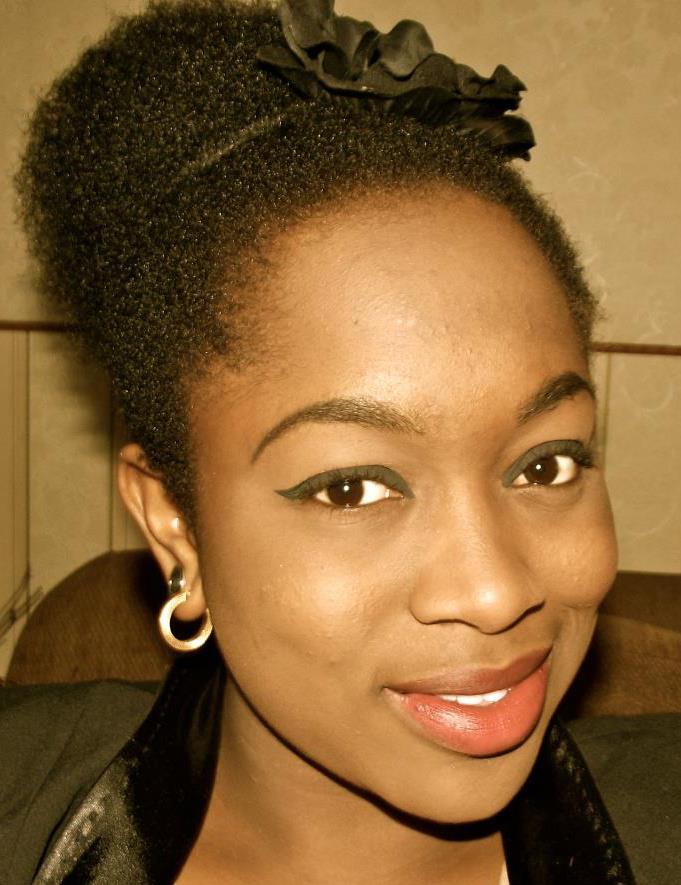
Many Black women who courageously decided to completely shave their hair did so because they were genuinely fed up. This was the case for 27-year-old Sadé Okayla Roache, who shaved it all off at 16. ‘I was fed up with the whole hair thing,’ she explained simply. ‘My scalp is super sensitive and I was so over it.’ With a lot of women in her family rocking their hair short, she had plenty of close examples of how to express beauty without long hair, making her own transition relatively easy. For others, the effect of frequently using chemical straighteners such as relaxers can lead to the buzz cut. Delia-Rene Donaldson, 32, shaved her head at age 28 to cut out her relaxer after it started giving her headaches.
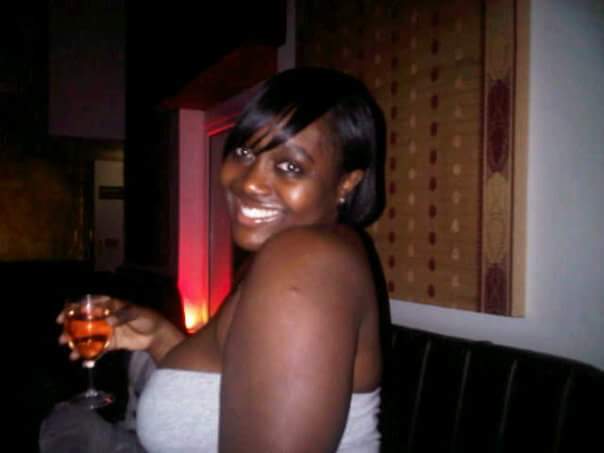
When enough was finally enough, she headed for a barbershop and, breaking a habit that had started when she was 12, she said goodbye to the ‘creamy crack’ and hello to her natural hair texture – a moment so moving that it brought her to tears. A month after keeping her hair short, she decided that she wanted to go even further, and shave it right down, eventually telling the barber: ‘I just want to shave it off, but still look feminine.’
With long hair being so tied to traditional ideas of feminine identity, women who wear their hair short or shave their heads are often subjected to invasive questions concerning their sexuality. After going bald, Delia-Rene’s perspective of beauty and femininity was challenged. ‘I had to relook at what beautiful is,’ she admitted – and happily for her, focusing on a feature other than her hair allowed her to reach a satisfying conclusion: ‘It made me embrace that I was naturally beautiful.’
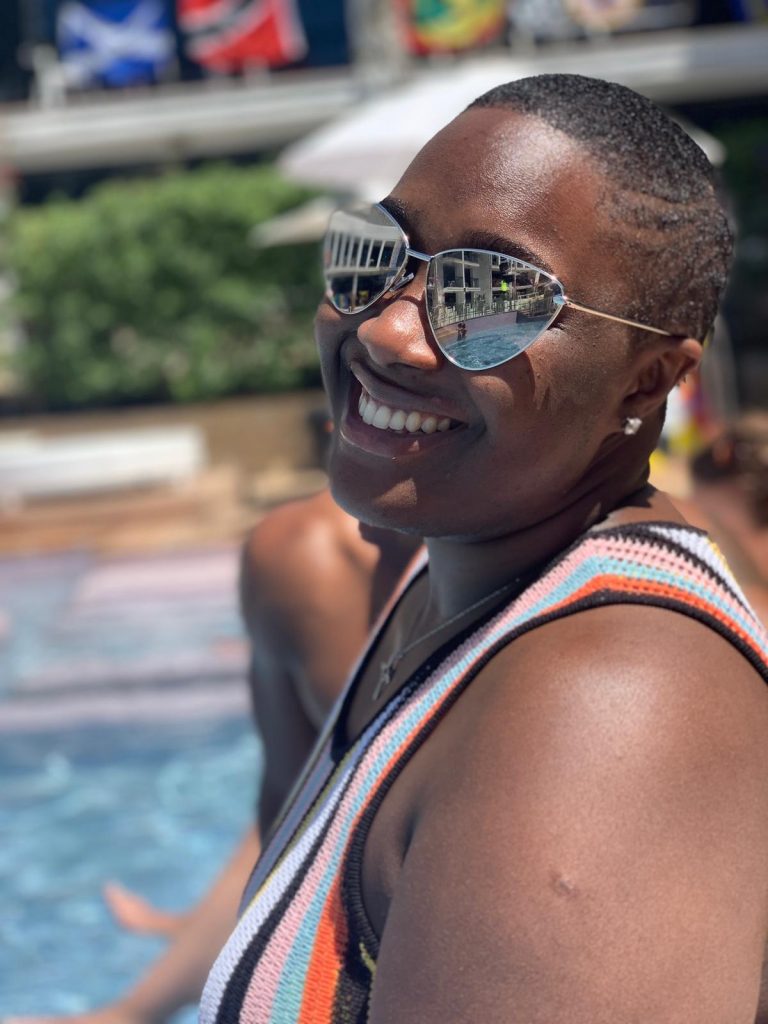
Hair and the belief that it should be meticulously maintained in order to be beautiful is so ingrained into the fabric of cultural consciousness, that making a large cut to hair length is often seen as the result of mental distress, or a punishment of some sort. In 2018’s romantic-drama film Nappily Ever After, central character Violet Jones (Sanaa Lathan) took to the clippers after things got unstable with her career and the decline of her relationship – Lathan, in dedication to the role, can be seen on screen really shaving her head to the skull.
Though the idea of making such a drastic change to your appearance can be a reaction to trauma and wanting to mark a new stage in your life, it’s not always the case. Delia-Rene tells me this is a common misconception that she’s tired of hearing about. ‘I hate when people assume I cut my hair because of a man, or that I went through a heartbreak,’ she tells me. ‘I hated that film. It’s such a stereotypical and weak idea; why can’t I cut my hair because I want to?’
Often, when Black women choose to shave their hair low, or completely bald, it’s them taking back control of their image and reclaiming their power and place as a woman. For Suzanne Tiega, when she decided to chop her hair off at 22, it was a moment in which she finally saw herself.
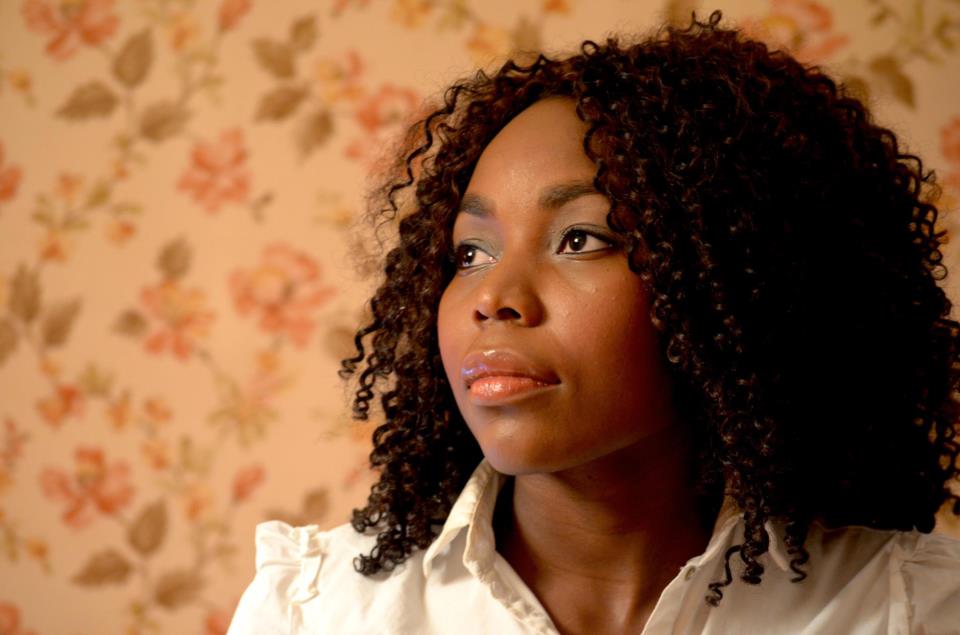
‘When I looked in the mirror, the woman I saw outside was the reflection of the woman I felt like on the inside,’ she says. Being raised in Cameroon, Suzanne was required to have short hair in order to attend her English-speaking school. As it happens, it was the change to a French-speaking school, where she had to grow her hair that left her feeling unhappy: ‘I felt more comfortable with short hair.’
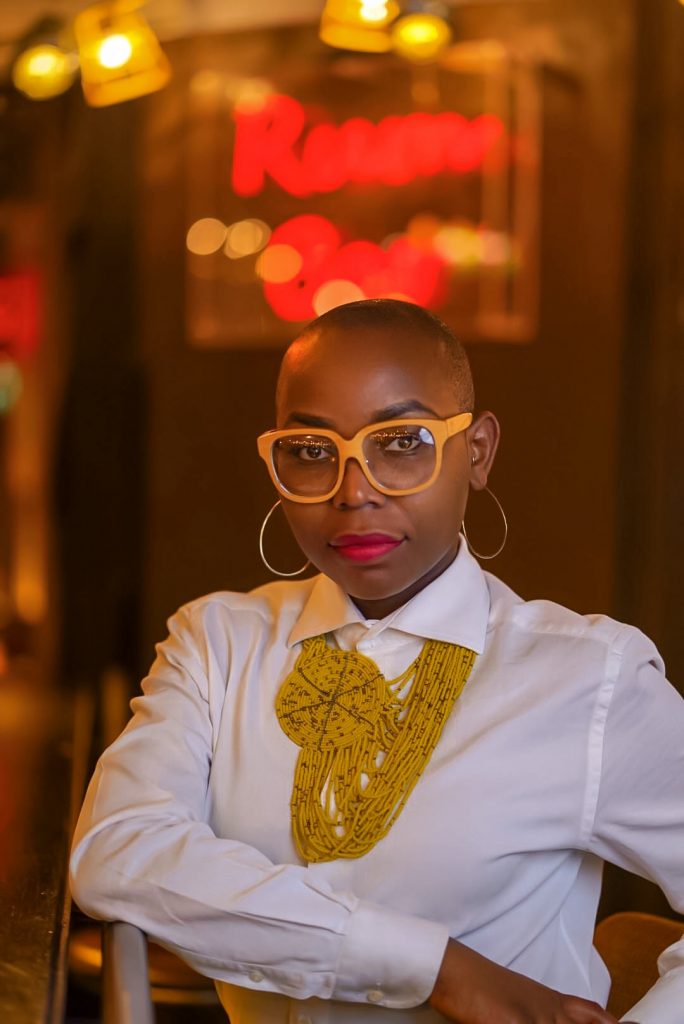
This sense of freedom is one also felt by the co-founder of Black Girl Festival, Nicole Crentsil. After rocking her hair in a natural afro style, she made the decision to cut her hair in 2018 – and for her, it was a pleasing affirmation of the possibilities that come with having afro-textured hair. ‘The most powerful and amazing thing about being a Black woman is that we can do whatever we want with our hair and it’ll grow back and you can do something else,’ she explained.
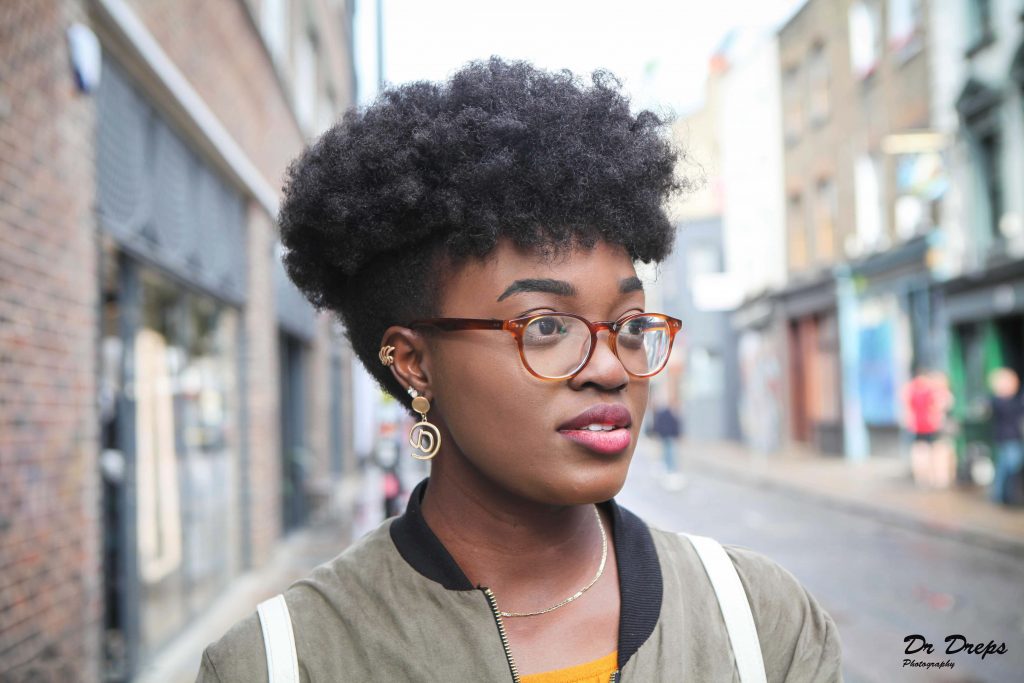
For Nicole, there was a new sense of liberation in her image and in her appreciation of herself as a Black woman when she shaved her hair off: ‘That felt so powerful, that felt like I was in control, I could be whoever I want without my hair defining me.’ Despite initially questioning whether going full-force ahead with the razor was the right thing to do, Nicole hushed those thoughts and went in for the shave regardless. Her Festival co-founder and close friend Paula Akpan also has a shaved head, and seeing them work together to foster a safe and enriching environment for thousands of Black women is powerful.
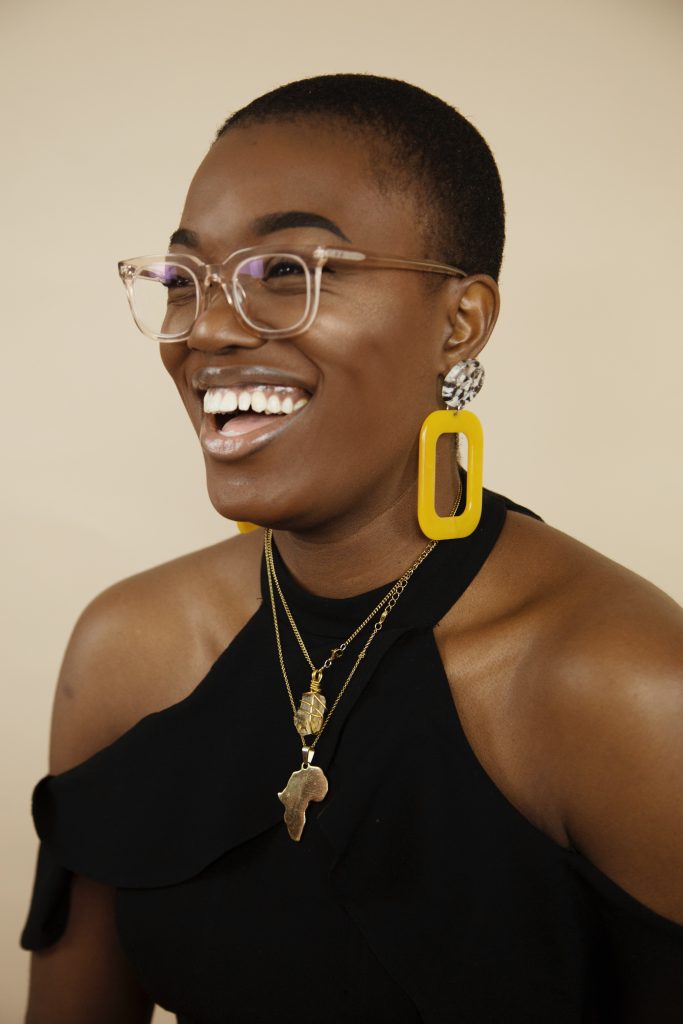
As well as seeing it more often in real life, bald and powerful Black women are getting more screen time too: Marvel’s astonishingly successful films Black Panther and Avengers: Infinity War and Endgame featured Danai Gurira as Okoye, the strongest warrior of the fictional African nation of Wakanda. This even inspired British actress Michaela Coel to completely shave her hair; after her shave, she posted a picture on Twitter announcing that she’d ‘Gurira’d’ her hair. She then went on to star in Netflix film Been So Long, which gave us the strikingly beautiful picture of a bald Black woman in love and being shown affection.
Bald Black women are redefining beauty and it feels like an empowering, liberating way to overcome perceptions surrounding femininity and beauty that were not invented with Black women in mind. At a time when Black hair is so policed and discriminated against, bald Black women are reclaiming their time, money and power while inspiring others to do the same. Now you’ve heard how freeing it is, will you be reaching for the clippers next?





